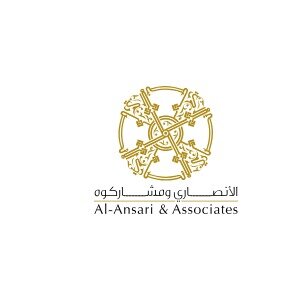Best International Trade Law Lawyers in Qatar
Share your needs with us, get contacted by law firms.
Free. Takes 2 min.
Or refine your search by selecting a city:
List of the best lawyers in Qatar
About International Trade Law in Qatar
International Trade Law in Qatar pertains to the legal frameworks and regulations that govern cross-border business activities and trade. As a nation that plays a significant role in global energy supplies, particularly liquefied natural gas, Qatar has developed a robust legal infrastructure to support international trade. This legal framework encompasses a variety of legal disciplines, including commercial law, customs regulations, import/export controls, and dispute resolution mechanisms, designed to facilitate smooth business operations while maintaining compliance with both national and international standards.
Why You May Need a Lawyer
Seeking legal advice in the field of International Trade Law in Qatar may be necessary for several reasons. Businesses and individuals may need legal assistance in navigating complex import/export regulations, resolving trade disputes, or negotiating international contracts. Lawyers can provide essential guidance on compliance with Qatari and international laws, ensuring that trade transactions meet all legal requirements and mitigating the risk of penalties or sanctions. Whether dealing with customs classifications, securing appropriate licenses, or understanding tariff schedules, having an experienced legal advisor can be crucial to successful international business operations.
Local Laws Overview
The key aspects of local laws relevant to International Trade Law in Qatar include:
- Commercial Law: Governed by the Qatar Commercial Companies Law, which outlines the rules for business operations, partnerships, and joint ventures.
- Customs Regulations: Managed by the Qatar Customs Authority, these laws detail the import and export procedures, duties, tariffs, and exemptions applicable to goods entering or leaving the country.
- Import/Export Controls: Regulations on restricted goods, dual-use items, and compliance with international treaties and embargoes.
- Dispute Resolution: Utilizing mechanisms like arbitration or seeking recourse through Qatari courts, often in coordination with international treaties such as the New York Convention on Arbitration.
- Intellectual Property Rights: Protecting patents, trademarks, and copyrights, which are crucial in international trade relations.
Frequently Asked Questions
What is the main regulatory body for international trade in Qatar?
The Ministry of Commerce and Industry, along with the Qatar Customs Authority, oversee trade regulations and customs procedures in Qatar.
What are the common barriers to importing goods into Qatar?
Common barriers include customs duties, import licenses, and regulations on restricted and prohibited goods.
Do I need a special license to import goods into Qatar?
Yes, businesses typically require an import license to bring goods into Qatar, which can be obtained through the Ministry of Commerce and Industry.
How can I resolve a trade dispute in Qatar?
Trade disputes can often be resolved through arbitration, mediation, or legal proceedings in Qatari courts, depending on the agreements in place.
What are the taxes and tariffs applicable to imports in Qatar?
Import duties are typically around 5%, but vary based on the type of goods. Some items, like tobacco, have higher tariffs.
How does Qatar handle trade sanctions and embargoes?
Qatar adheres to UN sanctions and other international agreements. Businesses must comply with these when engaging in international trade.
What is required for compliance with Qatari customs regulations?
Compliance involves proper declaration, accurate documentation, adherence to import regulations, and payment of associated duties and taxes.
Are there specific environmental regulations affecting trade in Qatar?
Yes, certain goods must comply with environmental standards and sustainability criteria, especially in the energy and waste management sectors.
Can foreign businesses directly engage in trade within Qatar?
Foreign businesses must typically partner with a local agent or set up a branch or representative office in Qatar, adhering to local business laws.
How does Qatar address intellectual property issues in trade?
Qatar enforces intellectual property rights through national laws and is a member of international agreements protecting IP rights.
Additional Resources
Here are some resources and organizations you can contact for more information on International Trade Law in Qatar:
- Ministry of Commerce and Industry: The primary government body regulating commerce and industry.
- Qatar Customs Authority: For guidance on customs procedures and regulations.
- Qatar International Court and Dispute Resolution Centre: For legal dispute resolution related to international trade.
- Qatar Chamber of Commerce and Industry: Provides support and information for businesses engaged in trade.
Next Steps
If you require legal assistance in International Trade Law in Qatar, consider the following steps:
- Identify and clearly define the specific legal issue or question you need assistance with.
- Research and consult with lawyers or law firms that specialize in International Trade Law in Qatar.
- Prepare all relevant documents and information that might be needed for your legal consultation.
- Schedule a consultation to discuss your case and understand the potential legal pathways and solutions available.
- Consider joining relevant business and trade organizations for ongoing support and updates on trade regulations and best practices.
Lawzana helps you find the best lawyers and law firms in Qatar through a curated and pre-screened list of qualified legal professionals. Our platform offers rankings and detailed profiles of attorneys and law firms, allowing you to compare based on practice areas, including International Trade Law, experience, and client feedback.
Each profile includes a description of the firm's areas of practice, client reviews, team members and partners, year of establishment, spoken languages, office locations, contact information, social media presence, and any published articles or resources. Most firms on our platform speak English and are experienced in both local and international legal matters.
Get a quote from top-rated law firms in Qatar — quickly, securely, and without unnecessary hassle.
Disclaimer:
The information provided on this page is for general informational purposes only and does not constitute legal advice. While we strive to ensure the accuracy and relevance of the content, legal information may change over time, and interpretations of the law can vary. You should always consult with a qualified legal professional for advice specific to your situation.
We disclaim all liability for actions taken or not taken based on the content of this page. If you believe any information is incorrect or outdated, please contact us, and we will review and update it where appropriate.
Browse international trade law law firms by city in Qatar
Refine your search by selecting a city.















